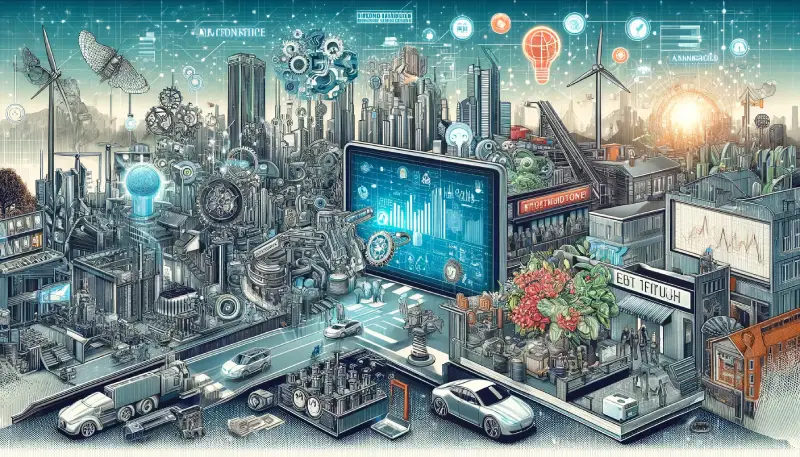The Economic Impact of Technological Advancements
Technological advancements have long been a driving force behind economic growth and transformation. In recent decades, the rapid pace of innovation has profoundly impacted various sectors of the economy. This article explores the multifaceted economic implications of technological progress, from increased productivity to shifts in labor markets and the rise of new industries.
Increased Productivity
One of the most significant economic impacts of technological advancements is the substantial increase in productivity. Automation, artificial intelligence (AI), and advanced manufacturing techniques enable businesses to produce goods and services more efficiently. For instance, automation in manufacturing reduces the time and cost required to produce items, leading to lower prices for consumers and higher profit margins for companies. This boost in productivity can spur economic growth by increasing the output per worker, enabling economies to grow without a proportional increase in labor input.
Labor Market Transformation
While technological advancements boost productivity, they also transform labor markets. Automation and AI have the potential to displace certain jobs, particularly those involving repetitive tasks. However, they also create new opportunities in sectors like tech development, data analysis, and AI maintenance. The demand for skilled workers in these areas is rising, prompting a shift in the types of skills that are valued in the job market. This necessitates a focus on education and retraining programs to help workers transition into new roles, ensuring they can benefit from technological progress.
Emergence of New Industries
Technological advancements pave the way for entirely new industries. The tech sector itself is a prime example, with companies focusing on software development, cybersecurity, and e-commerce experiencing substantial growth. Innovations in renewable energy, biotechnology, and fintech are also creating new economic opportunities. For instance, the rise of electric vehicles (EVs) and the associated infrastructure has led to the growth of a multi-billion-dollar industry, contributing to job creation and economic diversification.
Globalization and Market Access
Technology has facilitated globalization by making it easier for businesses to reach international markets. E-commerce platforms allow even small businesses to sell products globally, expanding their customer base and increasing revenue potential. Additionally, advancements in communication technology, such as high-speed internet and mobile connectivity, enable remote work and global collaboration, further integrating the world economy.
Financial Inclusion
Technological advancements in the financial sector, particularly through fintech innovations, have significantly enhanced financial inclusion. Mobile banking, digital payment systems, and blockchain technology provide financial services to populations that were previously underserved by traditional banks. This increased access to financial resources enables more people to participate in the economy, fostering economic growth and reducing poverty.
Challenges and Considerations
Despite the many benefits, technological advancements also pose challenges. The displacement of workers due to automation requires careful management to avoid social and economic disruption. Additionally, there are concerns about data privacy and security as digital technologies become more pervasive. Policymakers must address these issues to ensure that the economic benefits of technology are broadly shared and that potential negative impacts are mitigated.
Conclusion
Technological advancements are a double-edged sword, offering significant economic benefits while also presenting challenges that must be managed. By increasing productivity, transforming labor markets, creating new industries, facilitating globalization, and enhancing financial inclusion, technology plays a crucial role in shaping the modern economy. However, it is essential to implement policies that support workforce transition, protect data privacy, and ensure equitable access to the benefits of technological progress. As we continue to innovate, balancing these considerations will be key to sustainable economic growth.

